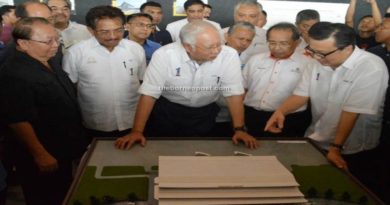EDITORIAL COLUMNIST: BP- Don’t bungle emergency
The invocation of the emergency decree had been anticipated given the steep rise in Covid-19 infections. However, centralising power will not be enough to curb this fast-spreading contagion.
As evident from the past three months, the coronavirus outbreak has landed government leaders, doctors and essentially everybody else in unknown territory. So far, little is known about the nature of this novel virus and how it wreaks havoc on the human body, especially since it passes easily from one to two to three persons even when the carrier is asymptomatic.
Since a cure or vaccine against Covid-19 is at best a year away, countries are doing their best to contain its spread. From China to New Zealand, lockdowns and social distancing seem to have worked in slowing down infections. The United Kingdom, meanwhile, is experimenting to see if herd immunity will work in keeping the fatality rate as low as possible while preserving limited health resources for those who badly need them.
.
Ads by: Memento Maxima Digital Marketing
@ [email protected]
– SPACE RESERVE FOR YOUR ADVERTISEMENT
Lessons from these countries, be they dictatorships or democracies, have shown that it is not the centralisation of power that is helping them curb the contagion. It is careful planning, comprehensive health care, willingness to spend on public health resources, use of data to track down infections and testing, testing, testing that have proved to work in flattening the infection curve and cutting down on fatalities.
Prime Minister Prayut Chan-o-cha did not clarify which aspects of the emergency decree he will choose to implement. It also does not bode well for the premier when he tells the public that the country is switching to emergency mode, but that people will have to wait until tomorrow to find out what it entails.
The suspense is unnecessary as the country’s citizens are already enveloped in confusion and paranoia. A rush to supermarkets to stockpile necessity items can be expected. Yet the gathering of many people in limited spaces is exactly what spells disaster at this point.
While the government may be led to believe that strict implementation of the law will help restrict people’s movement and lock down cities and towns, experiences over the past few weeks should convince them otherwise.
It’s nearly impossible for low-income wage earners or informal workers to stay put when their workplace shuts down and they have no income. A raft of measures must be implemented to help them so they can practise self-quarantine as required. Otherwise, no matter how strict or authoritative the orders are, they will be useless.
.
Ads by: Memento Maxima Digital Marketing
@ [email protected]
– SPACE RESERVE FOR YOUR ADVERTISEMENT
The government has lost a great deal of credibility because of its delayed and indecisive response to the outbreak. The country had a window of opportunity when the rate of infection was low and could have been managed better had a stricter lockdown been implemented.
When the state of emergency is imposed, one can only hope the government realises millions of lives are in its hands. And if the emergency decree is rolled out without a clear vision, decisive leadership and competent implementation, it could end up creating a huge mess.
The timing is critical, and with so much power in its hands, the government cannot afford to take another wrong step.
.










